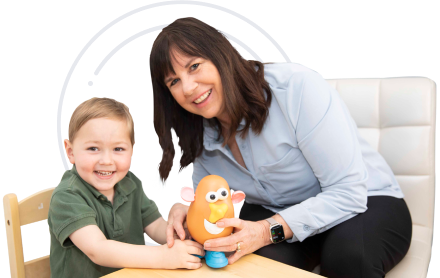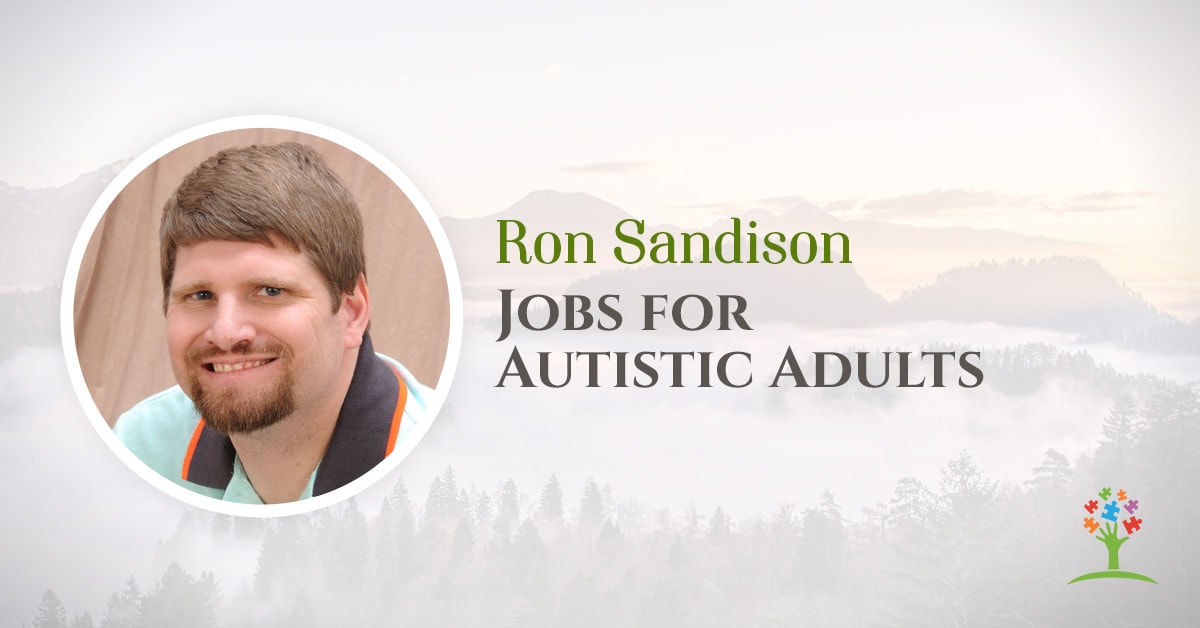Ron Sandison: Jobs for Autistic Adults
Want to Learn how to Increase Talking & Decrease Tantrums in Children with Autism or Toddlers Showing Signs?
Want to start making a difference for your child or clients?

Refrigerator Mother
Ron shares his story of developmental delays, changes, and diagnosis. Back when he was diagnosed, autism was believed to be caused by parents, mothers specifically who were cold, but this wasn’t the case! His mom was what I call a Gung-Ho parent, ready to find resources and work hard to turn things around and find the best outcome for her son. Ron was formally diagnosed at age 7 but was supported by his parents before and after his diagnosis, such as parent-led art therapy, advocating for his visual learning style, and ideas like budgeting and earning money. When it comes to Ron’s developmental growth and adult success, Ron credits his mom for two really important things.
- She believed in him. This seems overall simple but is so important that you believe in your child and the realistic goals they can achieve.
- She taught him to market his skills. Regardless of your child’s abilities, they have strengths and skills that they can use to participate in the world around them. Determine how and where they apply and teach your child to take their skills and passion to be productive as a member of their society.
Percentage of Autistic Adults Employed
Books Written by Autistic Authors
We discuss Ron’s first two books, A Parent’s Guide to Autism and Thought, Choice, Action, as well as his upcoming book in 2023. While still untitled, Ron’s new book will focus on autism growth and transitioning to adulthood. For this book, he interviewed over 100 gainfully employed autistic individuals. Increasing the rate of gainful employment for autistic adults is a passionate project for Ron because he first hand understands the struggles of young teens and adults with autism.
Love, Dating, Marriage, and Parenthood
Ron celebrated 10 years married to his wife last year, and has a 6-year-old daughter. He met his wife on the dating website, Plenty of Fish and shared the skills and ideas he taught himself to understand dating, and being a good partner. When he met his wife, who is not on the spectrum, they “just clicked”. Ron explains that being a husband and a father with autism is not without struggles, but he has learned a lot and manages his family life very well.
You can hear all of the details from Ron Sandison’s story by listening to the full episode. You can also learn more about him and his books at his website, Spectrum Inclusion.

Ron Sandison on the Turn Autism Around Podcast
Ron Sandison works full-time in the medical field and is a professor of theology at Destiny School of Ministry. He is an advisory board member of the Art of Autism and the Els Center of Excellence. Sandison has a Master of Divinity from Oral Roberts University and is the author of A Parent’s Guide to Autism: Practical Advice, Biblical Wisdom published by Charisma House and Views from the Spectrum. He has memorized over 15,000 Scriptures including 22 complete books of the New Testament. Sandison speaks at over 70 events a year including 20-plus education conferences. He is the founder of Spectrum Inclusion which empowers young people with autism for employment. Ron and his wife, Kristen, reside in Rochester Hills, MI, with their daughter, Makayla. His website is www.spectruminclusion.com. You can contact him [email protected].
You’ll Learn
- Ron Sandison’s Autism Story.
- Two important things Ron Sandison’s mom did for him.
- Higher needs vs lower needs in autism.
- How learning styles can affect learning in autism.
- Why is the rate of gainfully employed individuals with autism so low?
- Ron Sandison’s books and advice for parents across the lifespan of people with autism.
- The importance of gainful employment for autistic teens and adults.
- Love, Dating, Marriage, and Parenting as an autistic adult.
Resources
- Interview with Dr. Temple Grandin on How to Turn Autism Around
- Ron Sandison on Facebook
- Books – Spectrum Inclusion
- Spectrum Inclusion
- My Story with Epilepsy, Autism, and Depression with Rachel Barcellona
- Autism in the Media, Dating & Love on the Spectrum | Interview with Dr. Kerry Magro
- PANS and PANDAS Disorders: Interview with Beth Maloney
- Sign up for a free Workshop
- Mary Barbera
- Mary Barbera on TikTok
- Mary Barbera on Instagram
Want to Learn how to Increase Talking & Decrease Tantrums in Children with Autism or Toddlers Showing Signs?
Want to start making a difference for your child or clients?
